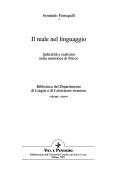| Listing 1 - 4 of 4 |
Sort by
|
Book
Abstract | Keywords | Export | Availability | Bookmark
 Loading...
Loading...Choose an application
- Reference Manager
- EndNote
- RefWorks (Direct export to RefWorks)
1809-1880 --- Biography --- Mathematicians --- Peirce, Benjamin,
Book
ISBN: 0912632844 9780912632841 Year: 1986 Volume: vol *15 Publisher: Bowling Green (Ohio): Bowling Green state university. Philosophy documentation center,
Abstract | Keywords | Export | Availability | Bookmark
 Loading...
Loading...Choose an application
- Reference Manager
- EndNote
- RefWorks (Direct export to RefWorks)
Philosophy --- Peirce, Charles Sanders --- Peirce, Charles S --- Bibliography --- 1 PEIRCE, CHARLES SANDERS <01> --- Filosofie. Psychologie--Bibliografieën. Catalogi--PEIRCE, CHARLES SANDERS --- Peirce, Charles S. --- -Bibliography --- 1 PEIRCE, CHARLES SANDERS <01> Filosofie. Psychologie--Bibliografieën. Catalogi--PEIRCE, CHARLES SANDERS --- Peirce, Charles Sanders, --- Peirce, C. S. --- Pirs, Charlz S., --- Peirce, Charles Santiago Sanders, --- Pʻo-erh-ssu, --- Pʻo-erh-ssu, Chʻa-li-ssu, --- Purs, Charls, --- Пърс, Чарлс, --- Bibliography. --- Peirce, Benjamin --- Indexes --- Chaersi Sangdesi Piersi, --- 查尔斯·桑德斯·皮尔斯, --- Peirce, Charles Sanders, - 1839-1914 - Bibliography --- Peirce, Charles Sanders, - 1839-1914

ISBN: 8834304535 9788834304532 Year: 1995 Volume: 8 54 Publisher: Milano: Vita e pensiero,
Abstract | Keywords | Export | Availability | Bookmark
 Loading...
Loading...Choose an application
- Reference Manager
- EndNote
- RefWorks (Direct export to RefWorks)
Semantics (Philosophy) --- Sémantique (Philosophie) --- Peirce, Charles S. --- Semiotics. --- Semiotics --- Semeiotics --- Semiology (Linguistics) --- Semantics --- Signs and symbols --- Structuralism (Literary analysis) --- -Contributions in semiotics --- Sémantique (Philosophie) --- Peirce, Charles Sanders, --- Peirce, C. S. --- Pirs, Charlz S., --- Peirce, Charles Santiago Sanders, --- Pʻo-erh-ssu, --- Pʻo-erh-ssu, Chʻa-li-ssu, --- Purs, Charls, --- Пърс, Чарлс, --- Peirce, Benjamin --- Contributions in semiotics --- Chaersi Sangdesi Piersi, --- 查尔斯·桑德斯·皮尔斯, --- Peirce (charles sanders), philosophe americain, 1839-1914 --- Critique et interpretation

ISBN: 9780226069913 0226069915 9780226069906 0226069907 9786611959180 0226069923 1281959189 9780226069920 Year: 2007 Publisher: Chicago University of Chicago Press
Abstract | Keywords | Export | Availability | Bookmark
 Loading...
Loading...Choose an application
- Reference Manager
- EndNote
- RefWorks (Direct export to RefWorks)
During the Enlightenment, Western scholars racialized ideas, deeming knowledge based on reality superior to that based on ideality. Scholars labeled inquiries into ideality, such as animism and soul-migration, "savage philosophy," a clear indicator of the racism motivating the distinction between the real and the ideal. In their view, the savage philosopher mistakes connections between signs for connections between real objects and believes that discourse can have physical effects-in other words, they believe in magic. Christopher Bracken's Magical Criticism brings the unacknowledged history of this racialization to light and shows how, even as we have rejected ethnocentric notions of "the savage," they remain active today in everything from attacks on postmodernism to Native American land disputes. Here Bracken reveals that many of the most influential Western thinkers dabbled in savage philosophy, from Marx, Nietzsche, and Proust, to Freud, C. S. Peirce, and Walter Benjamin. For Bracken, this recourse to savage philosophy presents an opportunity to reclaim a magical criticism that can explain the very real effects created by the discourse of historians, anthropologists, philosophers, the media, and governments.
Ethnophilosophy --- Magical thinking. --- Philosophy and civilization. --- Semiotics. --- History. --- Magical thinking --- Philosophy and civilization --- Semiotics --- Mystical-magic thinking --- Fantasy --- Magic --- Thought and thinking --- Folk philosophy --- Indigenous peoples --- Philosophy, Primitive --- Primitive philosophy --- Cognition and culture --- Ethnology --- Philosophy --- Semeiotics --- Semiology (Linguistics) --- Semantics --- Signs and symbols --- Structuralism (Literary analysis) --- Civilization and philosophy --- Civilization --- History --- critical, critique, criticism, savage, philosophy, philosopher, philosophical, enlightenment, time period, era, western, race, racial, racialized, racism, knowledge, identity, ideality, scholars, researchers, academic, scholarly, research, animism, soul, migration, ideal, discourse, physical, ethnocentric, ethnicity, native american, postmodernism, marx, nietzsche, proust, peirce, benjamin.
| Listing 1 - 4 of 4 |
Sort by
|

 Search
Search Feedback
Feedback About UniCat
About UniCat  Help
Help News
News